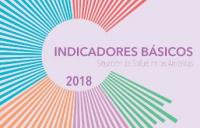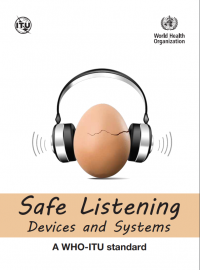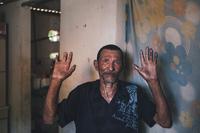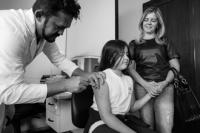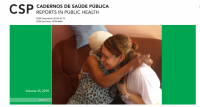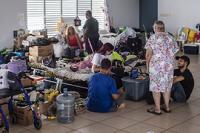You are here
News
-
02/15/2019 - The Americas region is home to more than one billion people. Every year, 15 million babies are born, and nearly 7 million people die. Life expectancy is 80.2 years for women and 74.6 for men. More than 8 in 10 people live in urban areas. These are some of the key statistics presented in the new “2018 Basic Indicators,” just published by the Pan American Health Organization (PAHO).
-
02/13/2019 - Each year, food contaminated with bacteria, viruses, parasites, toxins or chemicals cause more than 600 million people to fall ill, and 420,000 to die worldwide, prompting a call from world leaders on Tuesday for greater international cooperation to make the food chain safer.
-
02/13/2019 - More than one billion 12 to 35-year-olds, risk irreversible hearing loss from exposure to loud sounds such as music played on their smartphone, UN health experts said on Tuesday, unveiling new guidelines to help address the problem. The recommendations to prevent noise-induced hearing loss and related conditions such as tinnitus – commonly experienced as a ringing sound inside the ear - include better functions on personal audio devices that monitor how loud, and for how long, people listen to music.
-
02/06/2019 - While cases of leprosy have fallen in the Region of the Americas, by 30% over the past 20 years, discrimination, stigma and prejudice surrounding the disease continue to hamper efforts to further stop its transmission. For this year’s World Leprosy Day, held on 27 January, the Pan American Health Organization (PAHO) called on countries to increase efforts to address stigma and discrimination in order to put an end to this easily curable disease.
-
02/05/2019 - Each year, approximately 72,000 women in the Americas are diagnosed with cervical cancer and more than 34,000 women die from this disease. HPV testing for women to detect precancerous lesions, followed by timely treatment, and together with HPV vaccination for girls are key strategies to prevent cervical cancer and save lives.
-
01/25/2019 - The World Health Organization, WHO, with the Pan American Health Organization, Opas, warns that the gap in the treatment of epilepsy in the region of the Americas and the Caribbean is over 50%. The objective of the study on one of the most common neurological disorders in the world is precisely to help these countries in the diagnosis and health care of the population. For this reason, Opas launched the document "The Management of Epilepsy in the Public Health Sector 2018".
-
01/23/2019 - The ILO Global Commission on the Future of Work calls for fundamental changes in the way we work in the new wave of globalization, rapid technological development, demographic transition and climate change, according to its report Work for a Brighter Future published on January 22. The report examines how to achieve a better future of work for all at a time of unprecedented change and exceptional challenges in the world of work.
-
01/22/2019 - The Reports in Public Health opens 2019 with numerous challenges for health policy and SUS. The January edition contains, in its Doctors in Primary Health Care (PHC) space, four articles that reflect on the experience and dilemmas of the profession of doctors in the health systems of Portugal, Brazil, Canada and Chile. In the editorial of this fascicle, the CSP publishers, Luciana Dias de Lima, Marilia Sá Carvalho and Cláudia Medina Coeli, emphasize that "physicians and their representative organizations occupy a central place in the construction trajectories of public health systems. At the international level, comparative studies emphasize the importance of the relations between the state and medical organizations for different health policy orientations and paths in specific institutional contexts".
-
01/16/2019 - The world is facing multiple health challenges. These range from outbreaks of vaccine-preventable diseases like measles and diphtheria, increasing reports of drug-resistant pathogens, growing rates of obesity and physical inactivity to the health impacts of environmental pollution and climate change and multiple humanitarian crises. To address these and other threats, 2019 sees the start of the World Health Organization’s new 5-year strategic plan – the 13th General Programme of Work. This plan focuses on a triple billion target: ensuring 1 billion more people benefit from access to universal health coverage, 1 billion more people are protected from health emergencies and 1 billion more people enjoy better health and well-being. Reaching this goal will require addressing the threats to health from a variety of angles.
-
01/08/2019 - Professionals in public health, international relations and related fields are invited to apply to the 2019 session of the Pan American Health Organization’s (PAHO) Leaders in International Health program. Applications must be received by Feb. 15.

